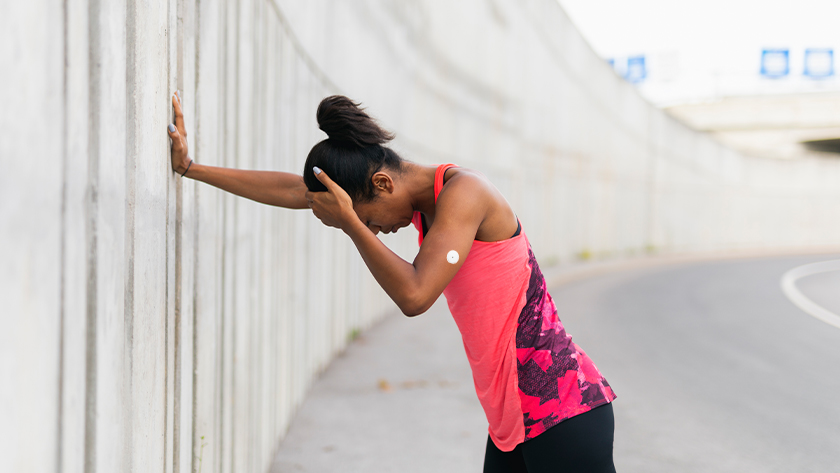
A research team at the KITE Research Institute has found that while aerobic exercise is important in the management of type 2 diabetes, those individuals taking specific types of diabetes medicines need to be careful about medicine intake and timing of exercise.
Type 2 diabetes is the most common type of diabetes and is a condition in which the body is unable to regulate and use sugar. After a meal, the body produces insulin—a hormone released from the pancreas that regulates the movement of sugar from the blood into the cells to provide energy. However, with type 2 diabetes, the body is resistant to insulin, which results in an accumulation of sugar (also known as glucose) in the bloodstream.
Over time, high blood sugar levels can lead to other long term health problems like cardiovascular disease (heart attack or stroke), kidney failure, vision loss, nerve damage (pain or loss of sensation), foot ulcers and amputation. To prevent this, individuals living with diabetes can help regulate their blood sugar levels by participating in regular exercise, monitoring their nutrition intake, managing stress and in some cases, taking diabetes medicines (e.g., insulin injections or pills).
“Regular exercise has an effect similar to that of diabetes medicines. It lowers blood sugar levels by increasing the capacity of the muscles cells to uptake glucose and use it for energy,” explains Dr. Tracey Colella, Research Scientist and Clinician at Toronto Rehabilitation Centre. “However, if the blood sugar levels become too low, a person may experience hypoglycemia.”
“Previous research has revealed the beneficial effects of regular exercise on blood glucose levels. However, we sought to investigate the combined effects of exercise and diabetes medicines on blood glucose levels” states Dr. Laura Banks, first author of the research article.
The study included a group of 52 individuals with type 2 diabetes—some of which were on diabetes medicines. All patients were enrolled in a rehabilitation exercise program and they monitored and recorded their blood glucose before and after aerobic exercise.
On average, blood glucose levels were reduced by 20% after exercise. Non-prescribed patients with elevated levels of glucose before exercise did not suffer from hypoglycemia. However, some patients taking certain types of prescribed diabetes medicines such as insulin did. “We realised that the blood glucose level before exercise in those patients was already significantly lower,” explains Dr. Colella. "Our findings suggest that patients should be encouraged to practice effective self-management strategies, including measuring blood glucose levels before exercise and adjusting meals and snacks to minimize the risk of exercise-induced hypoglycemia during or after exercise.”
Although current clinical guidelines indicate a need to reduce diabetes medicines in those patients that practice exercise regularly, this study highlights the need to educate patients about self-management strategies to prevent and treat hypoglycemia. Patients prescribed insulin or secretagogue medicines (e.g., glyburide) should always carry sugar with them including while exercising.
These findings come alongside the 100th anniversary of the discovery of insulin and continue a long legacy of research into treatments and strategies to improve the lives of individuals living with diabetes. Discovered by Frederick Banting and Charles Best at the University of Toronto, insulin injections were used to treat a patient for the first time in January 1922 at the Toronto General Hospital.
Since then, diabetes treatments have come a long way and include a wide variety of medicines, some of which are not insulin based. Future research is needed to investigate the effect that these other types of medicines have on blood sugar levels when combined with varying degrees of exercise.
Dr. Colella concludes, "Our findings have the potential to improve disease management strategies for individuals with type 2 diabetes by providing them with new insights into how to best manage their diabetes according to their lifestyle.”
This work was supported by the Toronto Rehabilitation Institute at UHN.
Banks L, Sparrow L, Sandison N, Oh P, Colella TJF. The effect of insulin on post-exercise hypoglycemia in adults with type 2 diabetes participating in outpatient exercise-based cardiac rehabilitation. Eur J Appl Physiol. 2021 Dec;121(12):3361-3367. doi: 10.1007/s00421-021-04781-7.

Dr. Tracey Colella (left), Research Scientist and Clinician at Toronto Institute and Dr. Laura Banks (right), Assistant Teaching Professor at Ontario Tech University.




